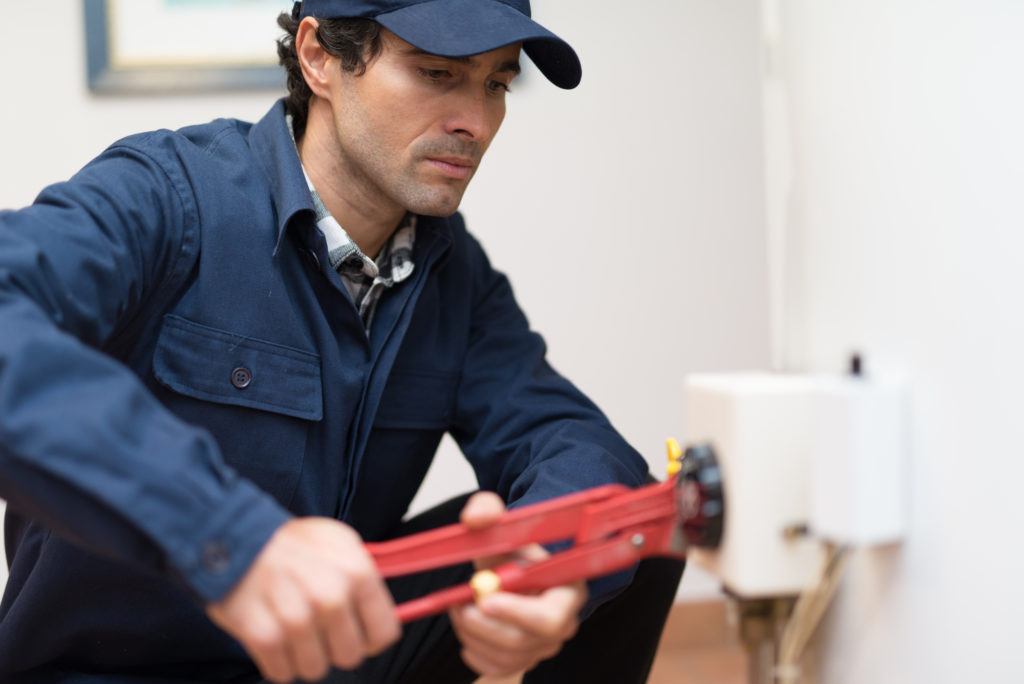We've noticed this article about Water Heaters Problems directly below on the net and figured it made perfect sense to talk about it with you over here.

Think of starting your day without your regular hot shower. That currently establishes an inadequate tone for the rest of your day.
Every residence requires a reliable hot water heater, yet just a couple of understand how to manage one. One simple means to maintain your hot water heater in top shape is to look for faults regularly as well as fix them as quickly as they appear.
Remember to shut off your water heater before smelling around for faults. These are the water heater faults you are most likely to encounter.
Water also warm or too cold
Every water heater has a thermostat that determines exactly how warm the water obtains. If the water entering your home is too hot regardless of setting a hassle-free optimum temperature, your thermostat may be defective.
On the other hand, as well cold water may be because of a fallen short thermostat, a busted circuit, or inappropriate gas circulation. For instance, if you make use of a gas water heater with a busted pilot burner, you would get cold water, even if the thermostat is in perfect condition. For electric heating systems, a blown fuse might be the offender.
Lukewarm water
Despite how high you set the thermostat, you will not obtain any hot water out of a heating system well past its prime. A water heater's efficiency may decrease with time.
You will likewise get lukewarm water if your pipes have a cross link. This means that when you switch on a tap, hot water from the heater flows in alongside regular, cold water. A cross link is easy to area. If your warm water taps still run after shutting the water heater valves, you have a cross link.
Strange noises
There are at least five sort of sounds you can learn through a water heater, yet the most usual analysis is that it's time for the hot water heater to retire.
First off, you ought to know with the typical seems a water heater makes. An electrical heating unit may appear various from a gas-powered one.
Standing out or banging noises generally imply there is a slab of sediment in your storage tanks, as well as it's time to clean it out. On the other hand, whistling or hissing noises may just be your valves letting some stress off.
Water leaks
Leakages can originate from pipelines, water links, shutoffs, or in the worst-case situation, the storage tank itself. Over time, water will rust the storage tank, as well as discover its escape. If this happens, you need to replace your water heater as soon as possible.
Nonetheless, before your modification your entire container, make certain that all pipes remain in area and that each shutoff works perfectly. If you still require aid determining a leak, call your plumber.
Rust-colored water
Rust-colored water means one of your water heater components is corroded. Maybe the anode rod, or the container itself. Your plumber will certainly have the ability to determine which it is.
Inadequate hot water
Water heaters come in several dimensions, relying on your warm water needs. If you run out of warm water prior to everyone has had a bathroom, your water heater is also small for your family size. You must think about installing a larger hot water heater container or choosing a tankless hot water heater, which occupies much less room and also is a lot more sturdy.
Discoloured Water
Corrosion is a major reason for unclean or discoloured water. Corrosion within the water container or a failing anode rod might create this discolouration. The anode rod shields the storage tank from rusting on the inside as well as ought to be checked annual. Without a pole or a properly functioning anode rod, the warm water quickly corrodes inside the container. Contact a specialist water heater service technician to determine if changing the anode pole will certainly deal with the issue; otherwise, replace your water heater.
Final thought
Ideally, your water heater can last one decade prior to you need a change. However, after the 10-year mark, you might experience any one of these faults more regularly. At this moment, you need to include a new water heater to your budget plan.
How To Troubleshoot 3 Common Water Heater Problems in Twin Cities
The Water Heater Is Leaking
- A leaky cold water inlet valve
- A loose pipe fitting
- A leaky temperature and pressure relief valve
- A corroded anode rod
- A cracked tank
Turn Off Your Water Heater:
- Shut off your gas water heater by turning the gas valve on the unit to the “OFF” position.
- Shut off your electric water by switching its power off at your electrical panel. Look for a two-pole breaker labeled “water heater” and turn it to the “OFF” position. Move the ball valve connected to the water heater to be perpendicular to the piping at a 90° angle.
Look for the Leak:
Depending on whether the water is coming from the tank's top or bottom, you’ll want to look for the leak in different locations.
If the leak comes from the top of the tank, carefully look for water escaping from the cold water inlet valve or loose pipe fittings. Rusted hot and cold water valves can have loose connections with the tank, with water leaking out of them.
https://mspplumbingheatingair.com/blog/how-to-troubleshoot-3-common-water-heater-problems
I discovered that blog posting about Common Problems with Tank Water Heaters when doing a lookup on the internet. Sharing is caring. You won't know, you might be doing someone a favor. Many thanks for taking the time to read it.
Leaks? Ring us!
Comments on “Managing Water Heater Challenges: A Step-By-Step Guide For The Usual Standard Challenges”